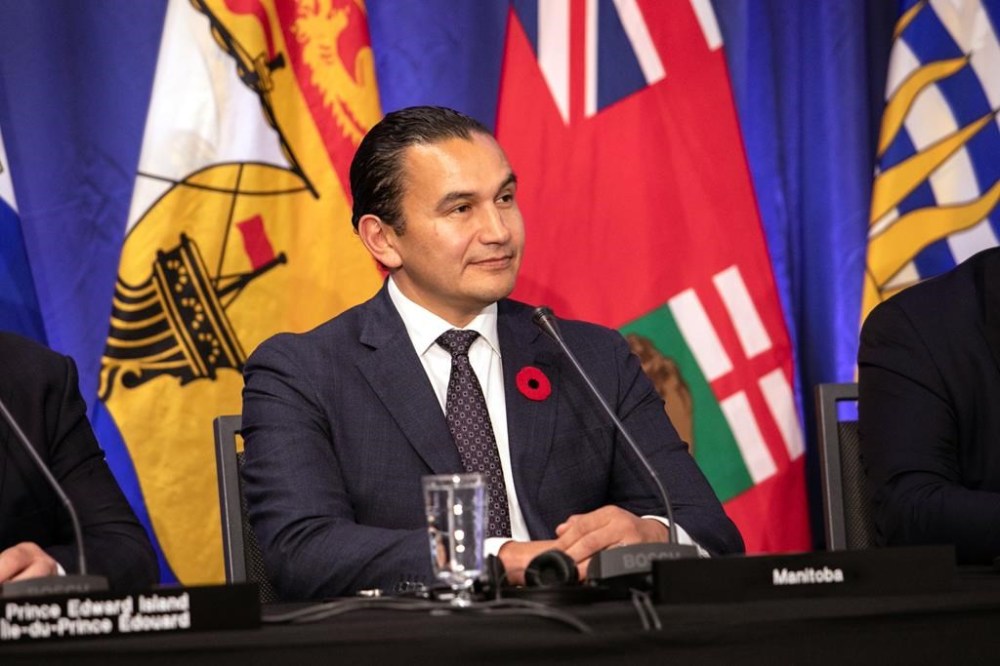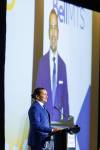The real ‘state of the province’ speech won’t be pretty
Advertisement
Read this article for free:
or
Already have an account? Log in here »
To continue reading, please subscribe:
Monthly Digital Subscription
$0 for the first 4 weeks*
- Enjoy unlimited reading on winnipegfreepress.com
- Read the E-Edition, our digital replica newspaper
- Access News Break, our award-winning app
- Play interactive puzzles
*No charge for 4 weeks then price increases to the regular rate of $19.00 plus GST every four weeks. Offer available to new and qualified returning subscribers only. Cancel any time.
Monthly Digital Subscription
$4.75/week*
- Enjoy unlimited reading on winnipegfreepress.com
- Read the E-Edition, our digital replica newspaper
- Access News Break, our award-winning app
- Play interactive puzzles
*Billed as $19 plus GST every four weeks. Cancel any time.
To continue reading, please subscribe:
Add Free Press access to your Brandon Sun subscription for only an additional
$1 for the first 4 weeks*
*Your next subscription payment will increase by $1.00 and you will be charged $16.99 plus GST for four weeks. After four weeks, your payment will increase to $23.99 plus GST every four weeks.
Read unlimited articles for free today:
or
Already have an account? Log in here »
Hey there, time traveller!
This article was published 07/12/2023 (698 days ago), so information in it may no longer be current.
Premier Wab Kinew delivered his inaugural state of the province address Thursday, but the real one will come next week.
That’s when the premier and Finance Minister Adrien Sala will give Manitobans a more detailed account of the province’s finances. The update is expected to include how the NDP government plans to make good on more than $500 million in new spending next year that it promised Manitobans during the recent election, while cutting taxes and grappling with a surprise $1.6-billion deficit.
Kinew’s 30-minute address to a sold-out business luncheon crowd at the RBC Convention Centre was largely a feel-good speech devoid of any details on the state of the province’s finances. There was a time when state of the province addresses were meant (as the name implies) to give the business community and the public an update on the province’s economic conditions and the state of the government’s finances. No more. The annual event has morphed into a platform for premiers to share personal stories and to shore up support from the corporate community.

With the exception of some compelling observations about how far Manitoba has come in making progress on reconciliation, including electing its first First Nations premier, Kinew stuck mostly to the modern-day script for these annual addresses.
The premier announced a new economic council — the Premier’s Business and Jobs Council — which most provincial governments do when they first get into office. It gives the appearance the government is doing something to bolster the economy. However, it typically produces little, if anything, in the way of tangible outcomes.
Kinew’s main mission Thursday was to create the impression that real change is on the way in Manitoba — including fixing health care and ending chronic homelessness — and that he and his NDP government will lead it.
“It feels like there’s something happening in Manitoba these days,” said Kinew.
Nice words. But when it came to spelling out how all of these things will get paid for, given the much higher-than-anticipated deficit announced this week and the NDP’s plan to keep all the tax cuts brought in by the former Tory government, the premier was mum.
Manitobans will have to wait until next week to see how this fiscal magic trick is supposed to work.
The NDP pledged $582.5 million in new spending for 2024-25 during the election. That included a $219.4-million increase in health care spending and $185 million on affordability issues, such as freezing Manitoba Hydro rates, cutting the fuel tax temporarily and bringing in a new renter’s tax credit. It also included $105.5 million for “safe and healthy communities,” such as a rebate for home security systems, funding for environmental organizations and money to end chronic homelessness over eight years.
With a budget deficit that has since ballooned to $1.6 billion from $363 million originally projected in the 2023 budget, it’s unclear how the NDP can pay for all of those goodies and still balance the books in four years, as promised.
Kinew reiterated to reporters following his speech that he plans to make good on all of the former Tory government’s tax reductions for 2024, including $486 million in income tax cuts and over $450 million in education property tax cuts. While that has kept the pro-tax cut ideologues happy (those who support a tax cut even if it was the last dollar collected by the government), neither he nor the tax-cutters have explained where the money will come from to balance the books and pay for all of the new things the NDP government has promised.
Even if the $1.6-billion deficit has been artificially inflated by the NDP for political reasons (there are limits to how far government can stretch that since the figures are produced by professional civil servants), it’s still a gargantuan shortfall. If it were cut in half to $800 million, it would still be a historically large deficit.
The government will have to borrow money to make good on the nearly $1 billion in tax cuts in 2024. That will come at a hefty cost to taxpayers down the road, who will eventually have to repay those amounts at historically high interest rates. That’s the part of the equation the pro-tax cutters don’t like to talk about.
There will be some stark messages when Kinew delivers the real state of the province address next week. No matter how he slices it, it won’t be pretty.
tom.brodbeck@freepress.mb.ca

Tom Brodbeck is an award-winning author and columnist with over 30 years experience in print media. He joined the Free Press in 2019. Born and raised in Montreal, Tom graduated from the University of Manitoba in 1993 with a Bachelor of Arts degree in economics and commerce. Read more about Tom.
Tom provides commentary and analysis on political and related issues at the municipal, provincial and federal level. His columns are built on research and coverage of local events. The Free Press’s editing team reviews Tom’s columns before they are posted online or published in print – part of the Free Press’s tradition, since 1872, of producing reliable independent journalism. Read more about Free Press’s history and mandate, and learn how our newsroom operates.
Our newsroom depends on a growing audience of readers to power our journalism. If you are not a paid reader, please consider becoming a subscriber.
Our newsroom depends on its audience of readers to power our journalism. Thank you for your support.


